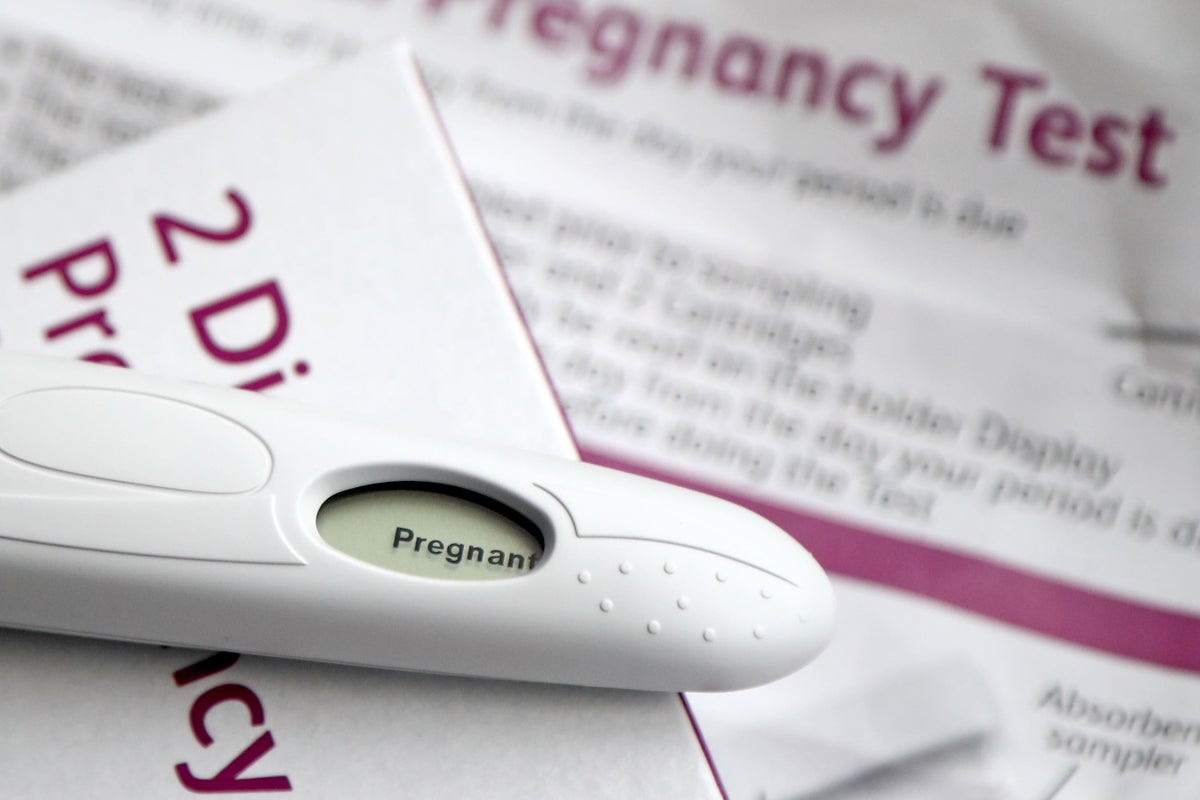
There has been a “significant increase” in the proportion of women seeking abortions who are using natural methods to prevent pregnancy, such as tracking periods on smartphone apps, a study suggests.
The proportion who reported using no contraception at all when they fell pregnant also increased by 14% between 2018 and 2023, analysis found.
It comes as researchers highlighted a “shift” in contraception use in the last five years, from “more reliable” hormonal contraceptives such as the pill, to “fertility awareness-based methods”.
These natural methods involve tracking menstrual cycles or symptoms of ovulation, such as changes to cervical mucus or basal body temperature, usually using smartphone apps.
This helps to estimate a woman’s fertile window, with couples avoiding sex on these days to prevent pregnancy.
However, researchers from the University of Edinburgh said these methods can be “less reliable”, with the potential to “increase unintended pregnancies”.
There appears to have been a significant increase in the proportion of individuals attending Bpas for abortion who use fertility awareness-based methods as a form of contraception and are using no method of contraception
For the study researchers looked at data from the British Pregnancy Advisory Service (Bpas) to explore what methods of contraception women who requested abortions were using.
The team compared two periods of time: January to June 2018, which included 33,495 women, and January to June 2023, which included 55,055 women.
Researchers found reported use of fertility awareness-based methods at the time of conception increased from 0.4% in 2018 to 2.5% in 2023.
The age of the women using these methods also fell from almost 30 to 27, analysis showed.
Women taking hormonal contraceptives such as the pill, the mini pill, patches and vaginal rings declined from 18.8% in 2018 to 11.3% in 2023.
Use of the contraceptive implant – a small rod placed under the skin which releases a hormone to stop the ovaries releasing an egg each month – fell from 3% to 0.6% over the period.
Those who reported using no form of contraception when they fell pregnant increased from 56% in 2018 to 70% in 2023.
Researchers said the findings, published in BMJ Sexual & Reproductive Health, show a “shift in contraception use from more reliable hormonal methods of contraception to less reliable fertility awareness-based methods of contraception among abortion patients”.
They added: “There appears to have been a significant increase in the proportion of individuals attending Bpas for abortion who use fertility awareness-based methods as a form of contraception and are using no method of contraception.
“This may be a result of preference or it may be related to difficulties with access to more effective methods of contraception in the preconception and post-abortion periods.”
It was also suggested that “hormone hesitancy attributed to the influence of social media has been reported in other European countries”.
The team added that further research is needed to explore the reasons for the change, but warned: “The decline in use of effective contraception and increase in abortion rates have wider implications for healthcare services.”
The study also found that the proportion of women who were seven weeks pregnant or under when they requested an abortion from Bpas services rose to 59.4% in 2023 compared with 35.6% in 2018, the study found.
Fewer women aged 25 or under requested an abortion in 2023 compared with 2018, the study found, while the proportion of women from ethnic minorities rose along with the proportion of medical abortions requested.
Researchers said that “further research is required to investigate the underlying driving forces of this shift” in contraceptive methods, but added: “In the interim, investment will be needed for accessible abortion and contraception services to meet demand.”
Ensuring access to abortion care is crucial to supporting women in making the choices that are right for them. At the same time, it’s vital to push for modern, innovative contraceptive methods that fit seamlessly into women’s lives and address concerns about side effects
Speaking of the findings, Dr Patricia Lohr, director of research and innovation at Bpas, said: “This study of abortion patients showed a rise in the use of fertility awareness-based methods and a decline in hormonal contraception.
“This may indicate women are making different contraceptive choices or can’t get the methods they want.
“A separate Bpas survey of the general population found that nearly half of women (49%) face barriers to accessing contraception, such as long waits for appointments, which restrict their ability to choose the methods that work best for them.
“In this context, abortion remains a vital option, whether as a back-up when contraception fails or as an alternative when contraception is unavailable or unsuitable. Ensuring access to abortion care is crucial to supporting women in making the choices that are right for them.
“At the same time, it’s vital to push for modern, innovative contraceptive methods that fit seamlessly into women’s lives and address concerns about side effects.
“Women deserve a full range of options that meet their needs without compromise.”







